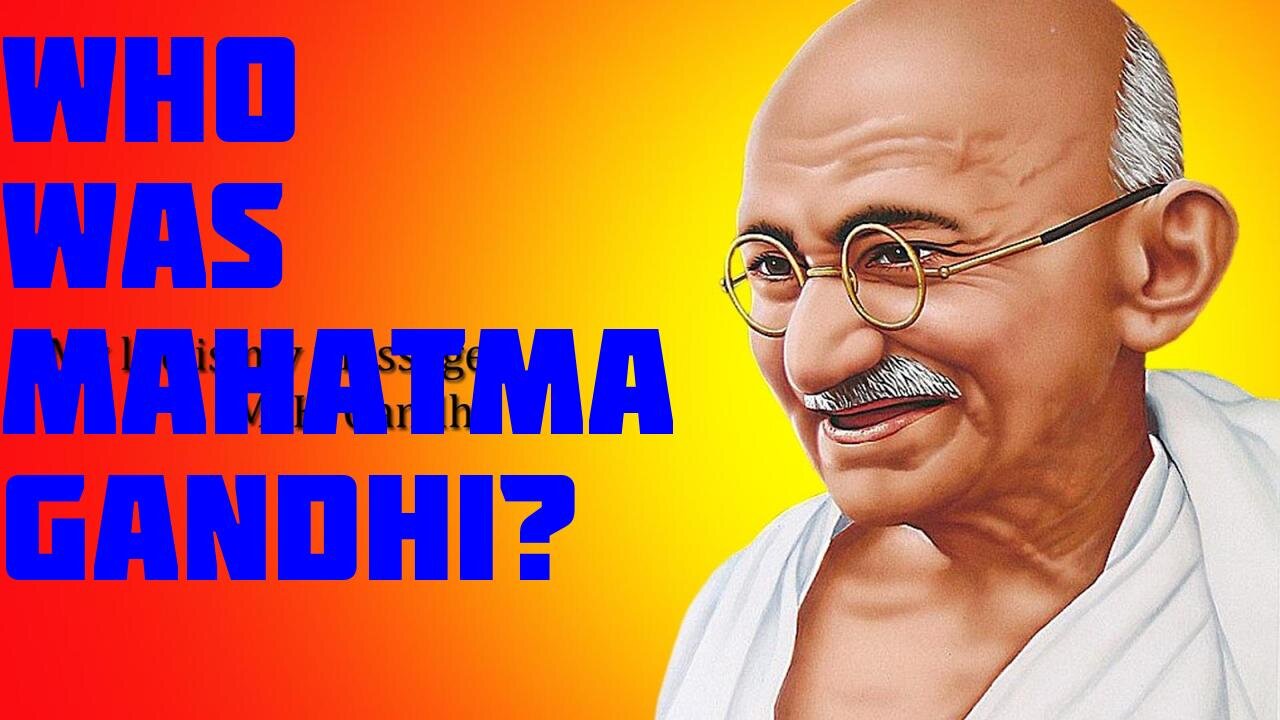Premium Only Content

Who was Mahatma Gandhi?
Have you ever heard of a man who changed the world with nothing but his unwavering belief in peace? Let me tell you about Mahatma Gandhi, a truly remarkable individual.
Born Mohandas Karamchand Gandhi in 1869 in coastal Gujarat, India, he was destined for greatness. After studying law in London, he initially struggled to establish a successful practice in India. A pivotal moment arrived in 1893 when he traveled to South Africa to represent an Indian merchant. This journey would transform his life.
Spending 21 years in South Africa, Gandhi witnessed firsthand the injustices of racial discrimination. It was there that he developed his philosophy of Satyagraha—nonviolent resistance—a powerful tool to fight oppression. He successfully used this method to achieve civil rights victories for the Indian community in South Africa.
Returning to India in 1915, Gandhi became a leading figure in the Indian independence movement. He inspired millions with his simple lifestyle, his commitment to truth, and his unwavering belief in peaceful protest. He championed the rights of the poor, women, and marginalized communities, advocating for social justice alongside national freedom. He famously led the Dandi Salt March in 1930, a 250-mile peaceful protest against the British salt tax, a moment that captured global attention and symbolized the Indian people's determination for self-rule.
Gandhi’s leadership of the Indian National Congress guided the nation towards independence. His relentless pursuit of Swaraj, or self-rule, led to countless imprisonments, yet he never wavered in his commitment. His methods influenced the Civil Rights movement in the United States and countless other freedom struggles across the globe.
Tragically, India's independence in 1947 was marred by religious violence between Hindus, Muslims, and Sikhs. Gandhi tirelessly worked to bring peace, even undertaking hunger strikes to quell the bloodshed. Sadly, his efforts were cut short on January 30, 1948, when he was assassinated by a Hindu nationalist.
Despite this tragic end, Gandhi’s legacy continues to inspire. His birthday, October 2nd, is celebrated worldwide as the International Day of Nonviolence, a testament to the power of his message. He remains an iconic figure, remembered as the Father of the Nation in India, and affectionately called Bapu, meaning "father".
Gandhi's life teaches us that even in the face of immense adversity, the power of nonviolent resistance can achieve remarkable things. His enduring message reminds us that peace, justice, and love are the most powerful weapons we possess in our struggle for a better world. His legacy urges us to choose peace over violence, understanding over hatred, and compassion over cruelty—a path that leads to a more just and harmonious future for all.
-
 57:26
57:26
X22 Report
8 hours agoMr & Mrs X - The Food Industry Is Trying To Pull A Fast One On RFK Jr (MAHA), This Will Fail - EP 14
85.2K52 -
 2:01:08
2:01:08
LFA TV
1 day agoTHE RUMBLE RUNDOWN LIVE @9AM EST
142K12 -
 1:28:14
1:28:14
On Call with Dr. Mary Talley Bowden
6 hours agoI came for my wife.
21.3K31 -
 1:06:36
1:06:36
Wendy Bell Radio
11 hours agoPet Talk With The Pet Doc
59.6K28 -
 30:58
30:58
SouthernbelleReacts
2 days ago $8.30 earnedWe Didn’t Expect That Ending… ‘Welcome to Derry’ S1 E1 Reaction
38.7K10 -
 13:51
13:51
True Crime | Unsolved Cases | Mysterious Stories
5 days ago $19.36 earned7 Real Life Heroes Caught on Camera (Remastered Audio)
56.6K12 -
 LIVE
LIVE
Total Horse Channel
17 hours ago2025 IRCHA Derby & Horse Show - November 1st
103 watching -
 4:19
4:19
PistonPop-TV
6 days ago $8.03 earnedThe 4E-FTE: Toyota’s Smallest Turbo Monster
44.8K2 -
 43:07
43:07
WanderingWithWine
6 days ago $5.14 earned5 Dreamy Italian Houses You Can Own Now! Homes for Sale in Italy
32.9K9 -
 LIVE
LIVE
Spartan
1 day agoFirst playthrough of First Berserker Khazan
76 watching